My Problematic Fave: A juicy question with many answers: Catherine Breillat. Dollarama. Nina Simone's version of "I Loves You, Porgy" (it's not on Simone, she saves it from Gershwin, it's just the one I love). I would say Woody Allen's Husbands and Wives or Deconstructing Harry, but I think it's okay to enjoy those (so bleak and revealing, they are basically a confession), it's more problematic that I love Manhattan.
First Movie I went on a Date for: Sweet Home Alabama, a double date with my neighbourhood friend and two guys from another school we met hanging out (as teens do) after school hours at the playground. He thought I was crying during an emotional scene where Reese Witherspoon visits a grave in her hometown (A grandparent? Childhood dog?), but I was a cynical 14-year-old, and not then or now a Rom Com girl, and was trying to muffle my laughter.
My Movie/TV Character Style Icon: Julia Stiles in Hamlet, Kiera Knightley in Love, Actually, Satine in Moulin Rouge, Maggie Cheung and Nathalie Richard in Irma Vep.
The First Sex Scene I Ever Saw: I can't remember for sure, but probably Titanic.
… and it made me feel: Confused: it gave me absolutely no information on what sex actually is, only that there were certain signals I would one day understand (like the men who laugh knowingly when they see the fogged up windows). Also afraid: it seemed sex would always leave some trace, and you could not hide it from anyone. Also romantic: sex was fun and actually fine, no one was hurt by it or punished for it (although it did happen right before they hit the iceberg, but this was not a coincidence that my young mind internalized.)
Best Needle Drop: Most of the songs in Rushmore (but maybe "Oo La La" by The Faces the most). I didn't even know what those songs were when I watched it at 15, but I knew that they were perfect.
I Wish this Fictional Meal Existed IRL: This meal does exist, but I have never seen the timpano from Big Night out in the wild, and although it seems like something that is better in theory than in execution, I'm not sure I'll feel fully satisfied if I never try one.
Untouchable Classic that I hate: How do I even pick! Citizen Kane does very little for me (except Welles, who I find quite hot), 2001: A Space Odyssey is glacial and so British (I do think the scene approaching the monolith on the moon is fab), Bresson leaves me dry (a symptom, perhaps, of him casting actors because they're hot), I find Parasite shallow, I only like the scenes in Stalker before and after they go to the Zone, and I can't get past Jeanne Dielman's melodramatic ending (which became an irritating staple of art house film).
Celebrity I had on my wall as a teen
Frank Black Francis and Karen O.
My film/TV OTP is: I can't think of a time when I felt the ending of a film or show should have been different, I like when characters come together, I like when they fall apart.
The Reality TV Show I Would Win: I think it's obvious that my true place is not as a competitor, but as a judge.
“Whom do you prefer to live with?”
This tendentious question arrives at the end of A Separation (2011), posed by a judge granting a divorce to the parents of Termeh, played by the director’s 14-year-old daughter Sarina Farhadi. It’s a question most teens, whose parents are alive and present in their lives, are privileged enough to possibly consider as that stage of passion known as adolescence rears its ugly head; a time to question who they are and begin to formulate who they wish to become, turning this way and that to locate the mirrors that echo their inner selves, poised not only between mother and father or friends and aesthetic tastes, but also between the shapes of their conflicting desires, the various paths forking towards uncertain fates.
“Wherever you turn,” writes Tove Ditlevsen, “you run up against your childhood and hurt yourself because it’s sharp-edged and hard, and stops only when it has torn you completely apart.” Isn’t this why teens have remained suitable subjects for cinematic intervention—since those grim, dreary years, unlike a discovery of a new language, actually feels like a constant elevation of the given vernacular.
Termeh, to everyone’s surprise, says that, in fact, she does have a preference, but that she can’t bring herself to say it while her parents are still in the room, so they are asked to leave, and without hearing her answer, the credits roll.
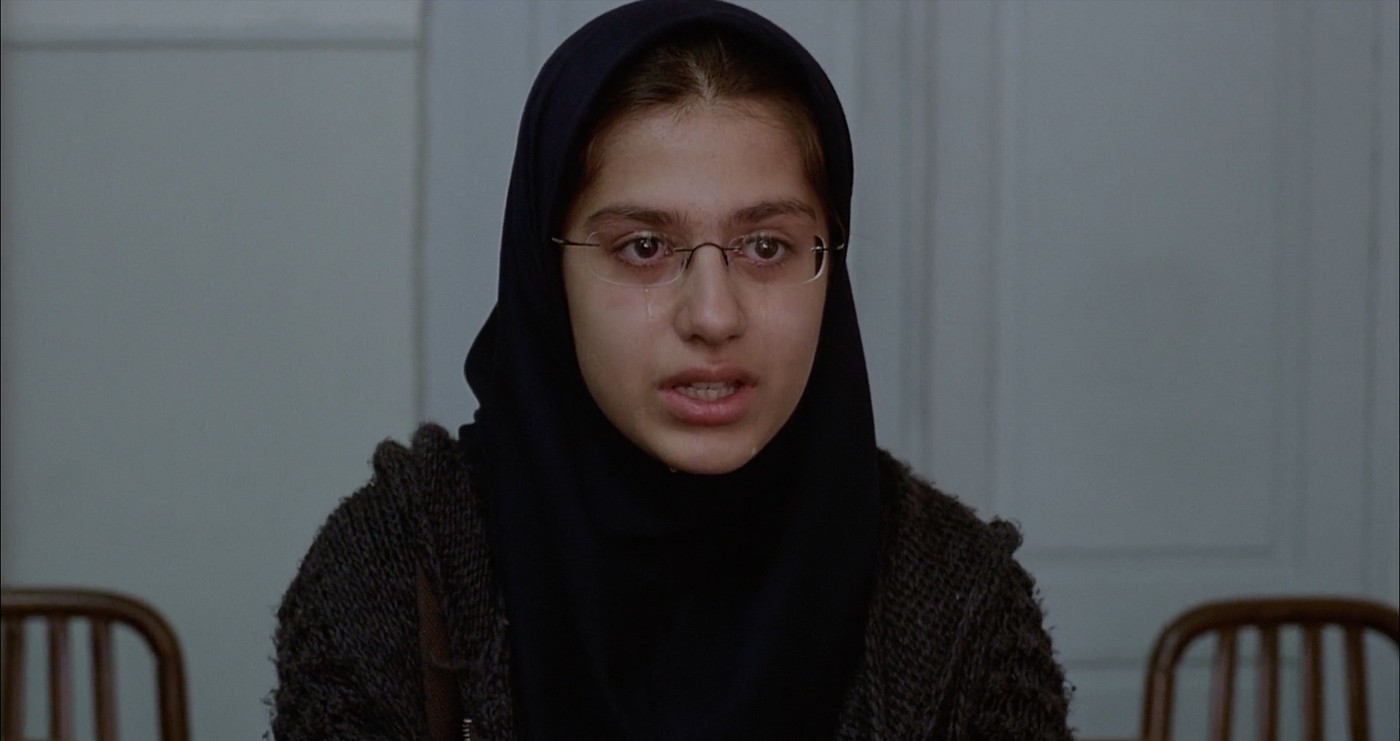
But for some teens, that decision to choose is nonexistent.
At the start of Volver (2006), Raimunda (Penélope Cruz) struggles to juggle all the roles in her life—grieving daughter, compassionate sister, passionate wife, protective mother—all of which collide in her kitchen in her flat in Madrid, after her daughter murders her husband. Since I can relate to a child’s impulse to kill their parent, this turn of events is not so shocking to me.
The parricidal impulse was first presented to me in the semi-autobiographical The 400 Blows (1959), where Antoine Doinel, played by Jean Pierre Léaud—that child star turned teen heartthrob turned exemplar of French men aging badly—uses his mother’s “death” to explain his absence from school; in real life, Truffaut lied that his father was arrested by the Germans.
Some of us discover this penchant early on because we are denied something we desire, but in Volver, for the 14-year-old Paula (Yohana Cobo), it is a defense against an unwanted advance; fortunate for her that Raimunda is game to clean up the mess along with the help of suite of flamboyant local women, since no one—at least not in Almodóvar’s ciné—moves through this wicked world solo.
Paula’s function in the narrative—other than charting the journey from observant daughter to disturbed victim and murderess to loving granddaughter—is a figure of the future who will inherit the knowledge and experiences passed down by women who, despite the myriad tragedies life continually places in their way, persist in moving forward. Paula, who has unknowingly broken the cycle of sexual violence she was born from.
In lieu of a patriarch, then, she can now turn to rest on the shoulders of her feisty mother, her neurotic aunt, and her loving, gassy, newly resurrected grandmother.
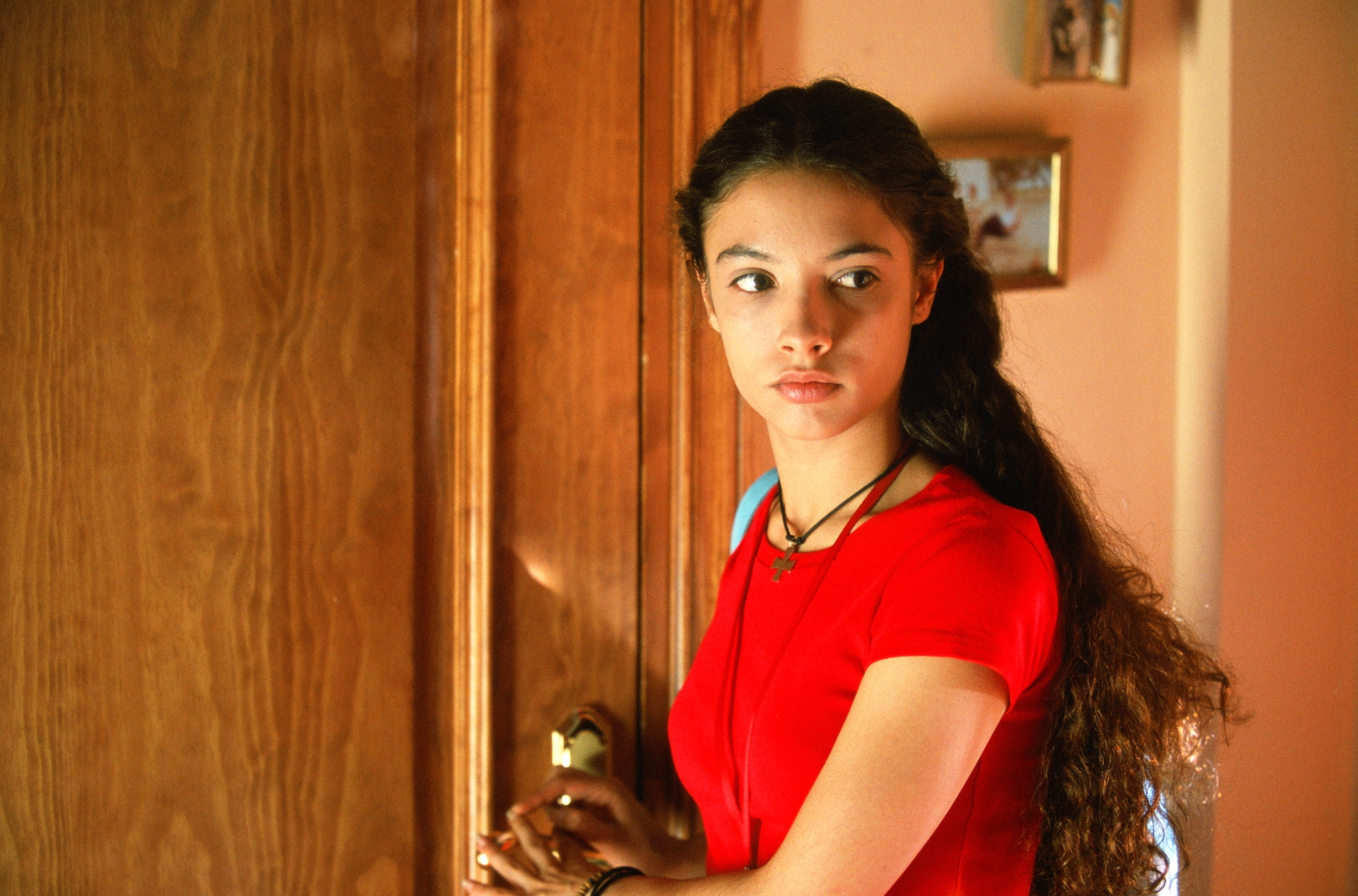
In The Wonders (2014), as Gelsomina—played by 14-year-old Maria Alexandra Lungu—tries to convince her parents to enter into a local talent competition, her younger, irritatingly troublesome sister, Marinella, played by Agnese Graziani, has a sudden revelation.
“Mum,” she says, “When I’m 60, will you be dead?”
Yes.
“When I’m 60, how old will Gelsomina be?”
“64. Why?”
Marinella instantly sours, the worst of her suspicions confirmed, everything comes crashing down: “It’s not fair,” she says, “She’ll be with you four years longer.”
I remember verbally rendering this scene to a man who is an only child as a way to explain the kind of jealousy that can take place amongst siblings, this desire to have the most time with a parent, to please them the most, to be at the top of their list of beloveds and receive the privilege of their good graces, the fickle stability that thought can bring.
My two sisters, whom I often turn to when our parents' version of emotional support does not suffice, often speak of the time “before Nirris was born,” as if the life they had back then was different, completely altered by my entrance onto the scene, upending the order.
Those years I will never have experienced but, through their anecdotes, pretend to.
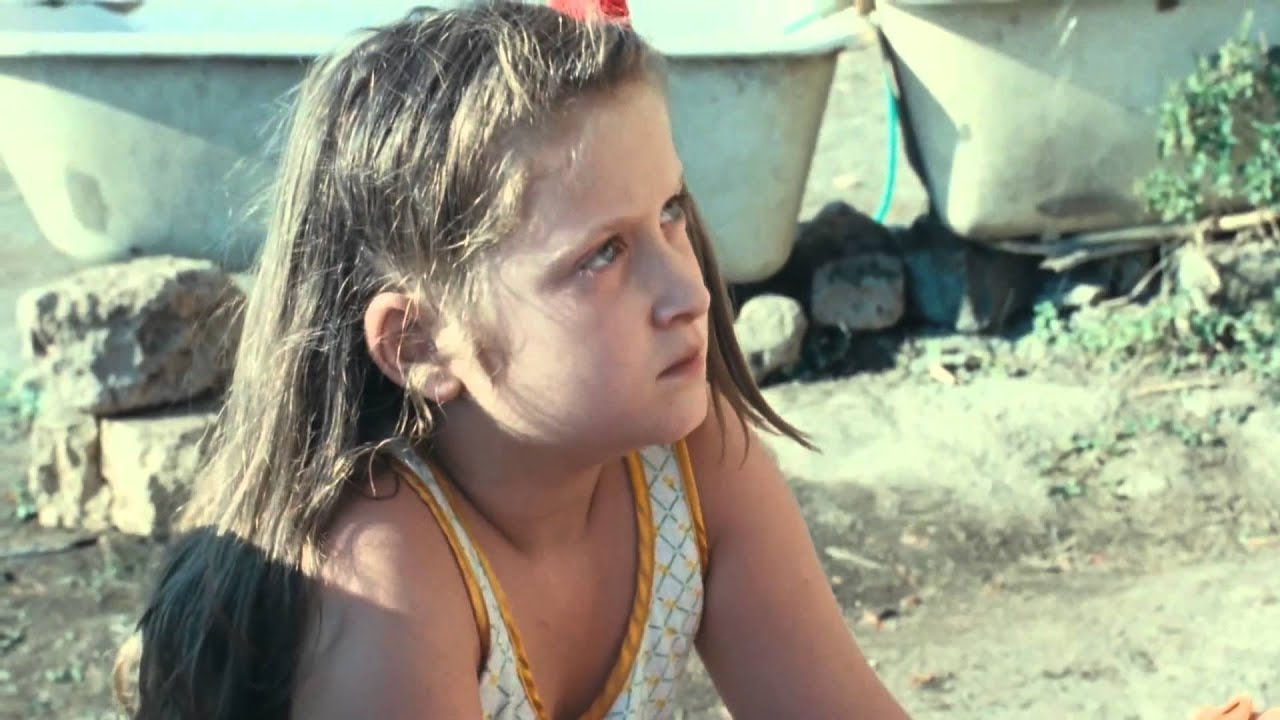
I decided to watch Girls Will Be Girls (2024) with my mother and my oldest sister, whose impassioned relationship the film seemed primed to reflect, and, when Mira started to butt heads with her mother (Kani Kusruti), it did. Our mother got excited and said: “This is a real story.”
But then, as Mira humped a stuffed animal; kissed her closed fist; studied her vagina with a hand mirror and masturbated in the shower, our mother’s mood shifted—not because of the depiction of sex; one of my fondest memories is watching Nymphomanic: Volume II (2013) with her—but because the director, Shuchi Talati, frames these scenes from a distance in extended shots, neither judging nor sensationalizing these acts, so that when the mother, rather than deter her, invites the boy over to their home and seems to flirt with him, my mother got up and went to bed.
She missed the scene where the boy touches Mira’s clit, fucks her with a condom on, then fails to protect her when another boy, whom she rejected early on, attacks her, then tries to fade out of the picture entirely. She missed the way the film sought to show that what the mother did was not to encourage her daughter to indulge in her impulses, but to give her the space to do so within her proximity, to learn this lesson on her own. She missed the last scene, when the daughter, lacerated yet enlightened, massages oil into her mother’s hair, then weeps into it.
Remember: not even for a skilled lover can you turn your back on your mother.
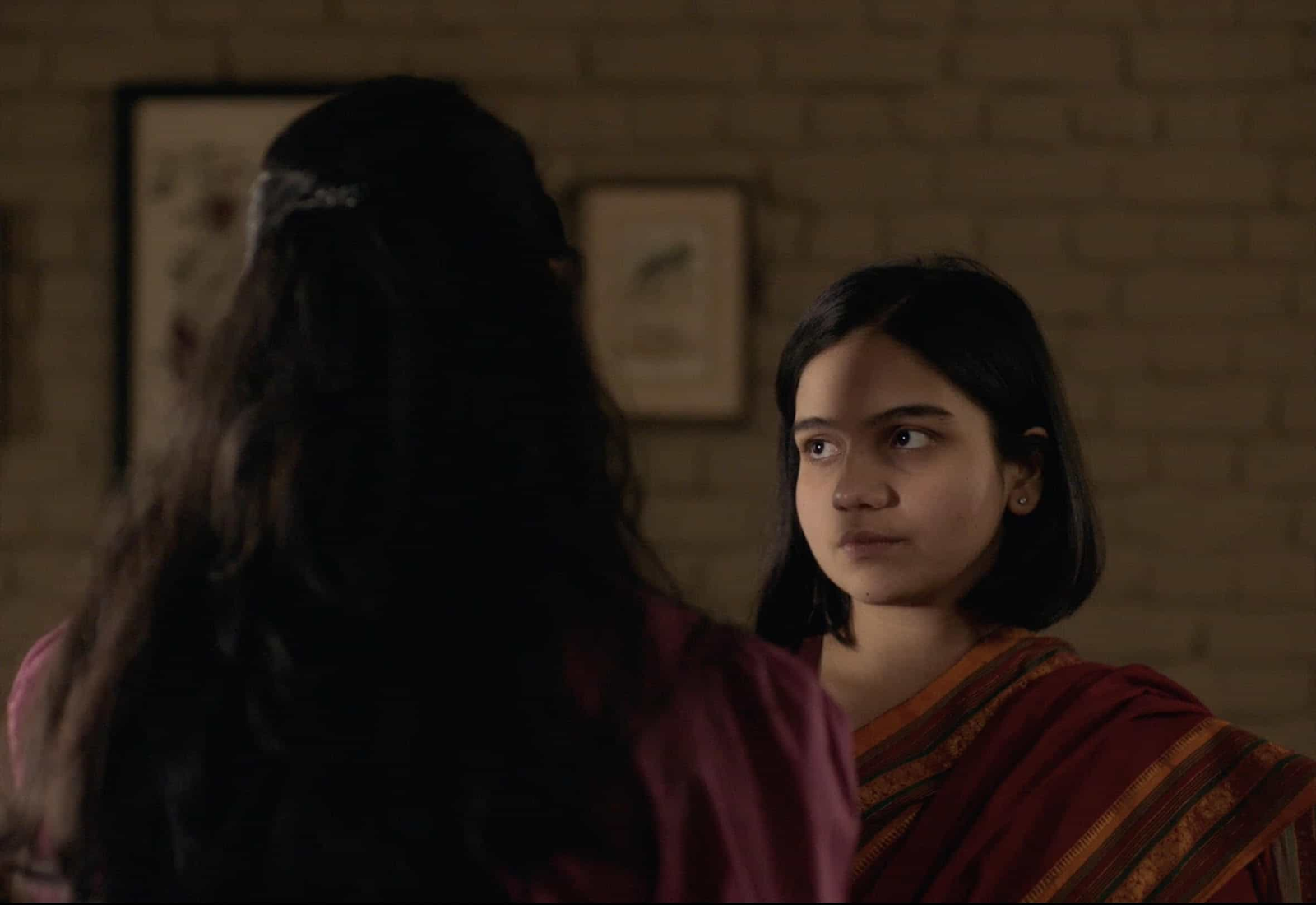
“Would you be disappointed if one day I dated a girl?”
This loaded question arrives in the middle of Janet Planet (2024), posed by the 11-year-old Lacy, played by Zoe Ziegler, who moves, acts, and thinks like a teen, dashing off thoughts like this from her consciousness as though they’re weeds grown from the muck of childhood. Lacy is the sort of kid who grows up around adults who forget that she is in the room with them, dropping their masks, letting go, and spilling truths in confessional tones.
What materializes from Lacy’s summery journey is an accumulation of stray objects she uses to create an altar: the Lindt wrappers as hats for her porcelain dolls; her mother’s earring found under the dinner table; the ripped off top corner of The New Yorker. She uses these ephemeral elements from a period of life lived more attuned to the fissures on the surface of the social fabric of life—those almost imperceptible yet cataclysmic changes that happen within—to shape a new image, one that will write over this awkward draft.
In the film’s coda, Lacy accompanies her mother contra dancing but refuses to participate. A man approaches her. “You wanna dance?” he asks. “You sure?” She nods no and looks ahead: one moment her mom in a bright red blouse spinning round and round; the next, nowhere to be seen. Mother, father, grandparent, sibling, lover, childhood; you turn towards these things for meaning until it is time for that inevitable turn, which the film, resting on Lacy’s face, lands.
It is the look of someone turning inward: at which point adulthood can commence.
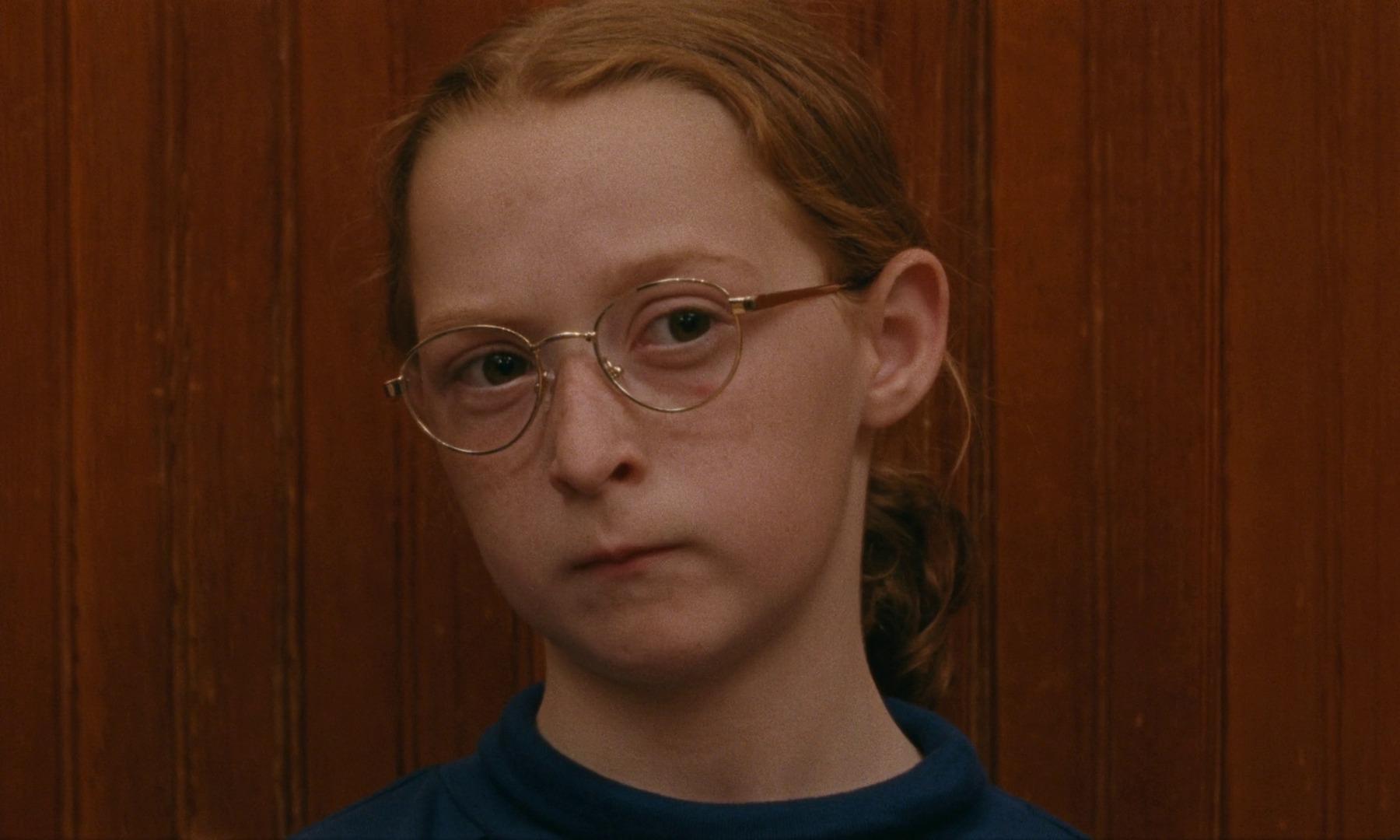
“Whom do you prefer to live with?”
This tendentious question arrives at the end of A Separation (2011), posed by a judge granting a divorce to the parents of Termeh, played by the director’s 14-year-old daughter Sarina Farhadi. It’s a question most teens, whose parents are alive and present in their lives, are privileged enough to possibly consider as that stage of passion known as adolescence rears its ugly head; a time to question who they are and begin to formulate who they wish to become, turning this way and that to locate the mirrors that echo their inner selves, poised not only between mother and father or friends and aesthetic tastes, but also between the shapes of their conflicting desires, the various paths forking towards uncertain fates.
“Wherever you turn,” writes Tove Ditlevsen, “you run up against your childhood and hurt yourself because it’s sharp-edged and hard, and stops only when it has torn you completely apart.” Isn’t this why teens have remained suitable subjects for cinematic intervention—since those grim, dreary years, unlike a discovery of a new language, actually feels like a constant elevation of the given vernacular.
Termeh, to everyone’s surprise, says that, in fact, she does have a preference, but that she can’t bring herself to say it while her parents are still in the room, so they are asked to leave, and without hearing her answer, the credits roll.

But for some teens, that decision to choose is nonexistent.
At the start of Volver (2006), Raimunda (Penélope Cruz) struggles to juggle all the roles in her life—grieving daughter, compassionate sister, passionate wife, protective mother—all of which collide in her kitchen in her flat in Madrid, after her daughter murders her husband. Since I can relate to a child’s impulse to kill their parent, this turn of events is not so shocking to me.
The parricidal impulse was first presented to me in the semi-autobiographical The 400 Blows (1959), where Antoine Doinel, played by Jean Pierre Léaud—that child star turned teen heartthrob turned exemplar of French men aging badly—uses his mother’s “death” to explain his absence from school; in real life, Truffaut lied that his father was arrested by the Germans.
Some of us discover this penchant early on because we are denied something we desire, but in Volver, for the 14-year-old Paula (Yohana Cobo), it is a defense against an unwanted advance; fortunate for her that Raimunda is game to clean up the mess along with the help of suite of flamboyant local women, since no one—at least not in Almodóvar’s ciné—moves through this wicked world solo.
Paula’s function in the narrative—other than charting the journey from observant daughter to disturbed victim and murderess to loving granddaughter—is a figure of the future who will inherit the knowledge and experiences passed down by women who, despite the myriad tragedies life continually places in their way, persist in moving forward. Paula, who has unknowingly broken the cycle of sexual violence she was born from.
In lieu of a patriarch, then, she can now turn to rest on the shoulders of her feisty mother, her neurotic aunt, and her loving, gassy, newly resurrected grandmother.

In The Wonders (2014), as Gelsomina—played by 14-year-old Maria Alexandra Lungu—tries to convince her parents to enter into a local talent competition, her younger, irritatingly troublesome sister, Marinella, played by Agnese Graziani, has a sudden revelation.
“Mum,” she says, “When I’m 60, will you be dead?”
Yes.
“When I’m 60, how old will Gelsomina be?”
“64. Why?”
Marinella instantly sours, the worst of her suspicions confirmed, everything comes crashing down: “It’s not fair,” she says, “She’ll be with you four years longer.”
I remember verbally rendering this scene to a man who is an only child as a way to explain the kind of jealousy that can take place amongst siblings, this desire to have the most time with a parent, to please them the most, to be at the top of their list of beloveds and receive the privilege of their good graces, the fickle stability that thought can bring.
My two sisters, whom I often turn to when our parents' version of emotional support does not suffice, often speak of the time “before Nirris was born,” as if the life they had back then was different, completely altered by my entrance onto the scene, upending the order.
Those years I will never have experienced but, through their anecdotes, pretend to.

I decided to watch Girls Will Be Girls (2024) with my mother and my oldest sister, whose impassioned relationship the film seemed primed to reflect, and, when Mira started to butt heads with her mother (Kani Kusruti), it did. Our mother got excited and said: “This is a real story.”
But then, as Mira humped a stuffed animal; kissed her closed fist; studied her vagina with a hand mirror and masturbated in the shower, our mother’s mood shifted—not because of the depiction of sex; one of my fondest memories is watching Nymphomanic: Volume II (2013) with her—but because the director, Shuchi Talati, frames these scenes from a distance in extended shots, neither judging nor sensationalizing these acts, so that when the mother, rather than deter her, invites the boy over to their home and seems to flirt with him, my mother got up and went to bed.
She missed the scene where the boy touches Mira’s clit, fucks her with a condom on, then fails to protect her when another boy, whom she rejected early on, attacks her, then tries to fade out of the picture entirely. She missed the way the film sought to show that what the mother did was not to encourage her daughter to indulge in her impulses, but to give her the space to do so within her proximity, to learn this lesson on her own. She missed the last scene, when the daughter, lacerated yet enlightened, massages oil into her mother’s hair, then weeps into it.
Remember: not even for a skilled lover can you turn your back on your mother.

“Would you be disappointed if one day I dated a girl?”
This loaded question arrives in the middle of Janet Planet (2024), posed by the 11-year-old Lacy, played by Zoe Ziegler, who moves, acts, and thinks like a teen, dashing off thoughts like this from her consciousness as though they’re weeds grown from the muck of childhood. Lacy is the sort of kid who grows up around adults who forget that she is in the room with them, dropping their masks, letting go, and spilling truths in confessional tones.
What materializes from Lacy’s summery journey is an accumulation of stray objects she uses to create an altar: the Lindt wrappers as hats for her porcelain dolls; her mother’s earring found under the dinner table; the ripped off top corner of The New Yorker. She uses these ephemeral elements from a period of life lived more attuned to the fissures on the surface of the social fabric of life—those almost imperceptible yet cataclysmic changes that happen within—to shape a new image, one that will write over this awkward draft.
In the film’s coda, Lacy accompanies her mother contra dancing but refuses to participate. A man approaches her. “You wanna dance?” he asks. “You sure?” She nods no and looks ahead: one moment her mom in a bright red blouse spinning round and round; the next, nowhere to be seen. Mother, father, grandparent, sibling, lover, childhood; you turn towards these things for meaning until it is time for that inevitable turn, which the film, resting on Lacy’s face, lands.
It is the look of someone turning inward: at which point adulthood can commence.


